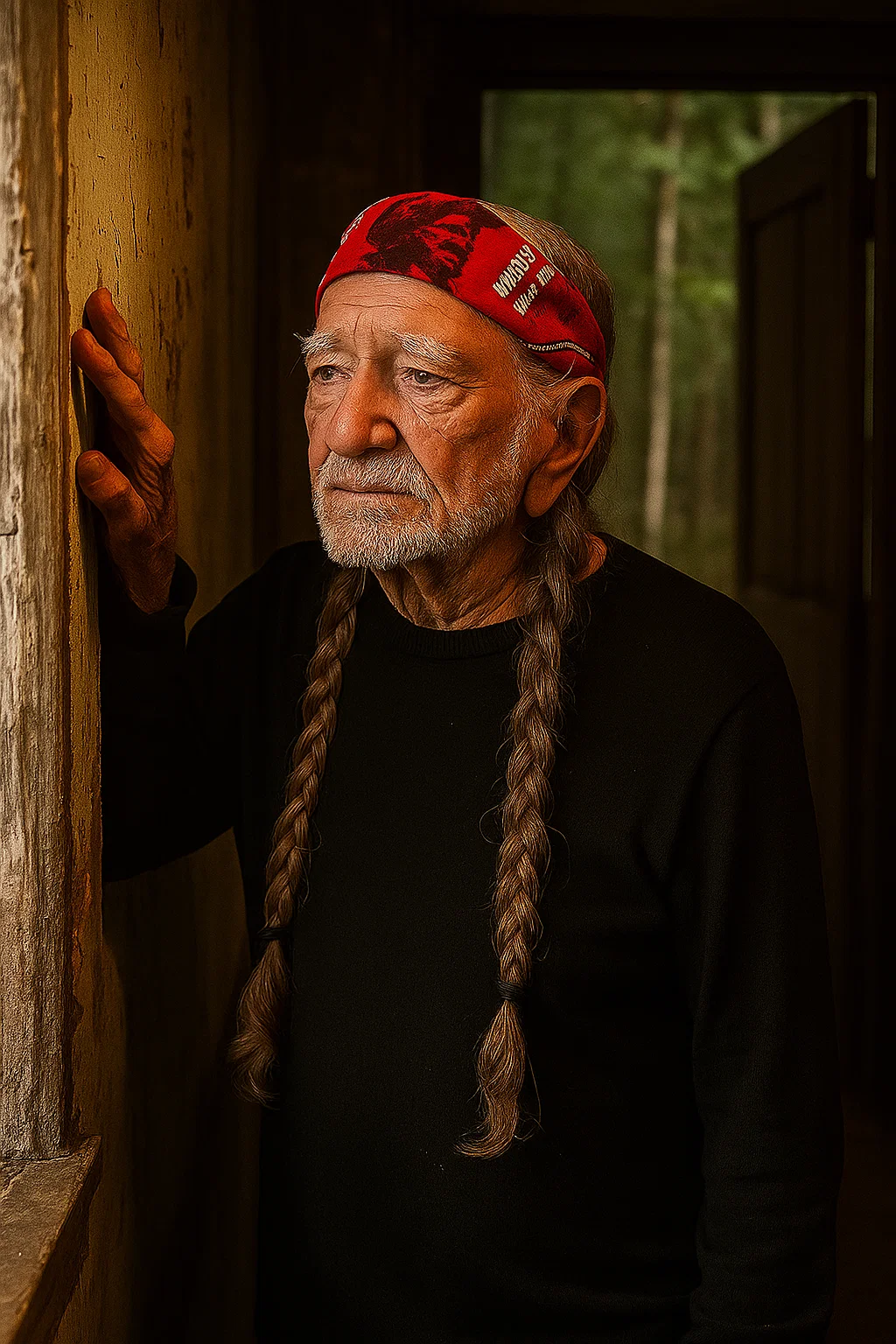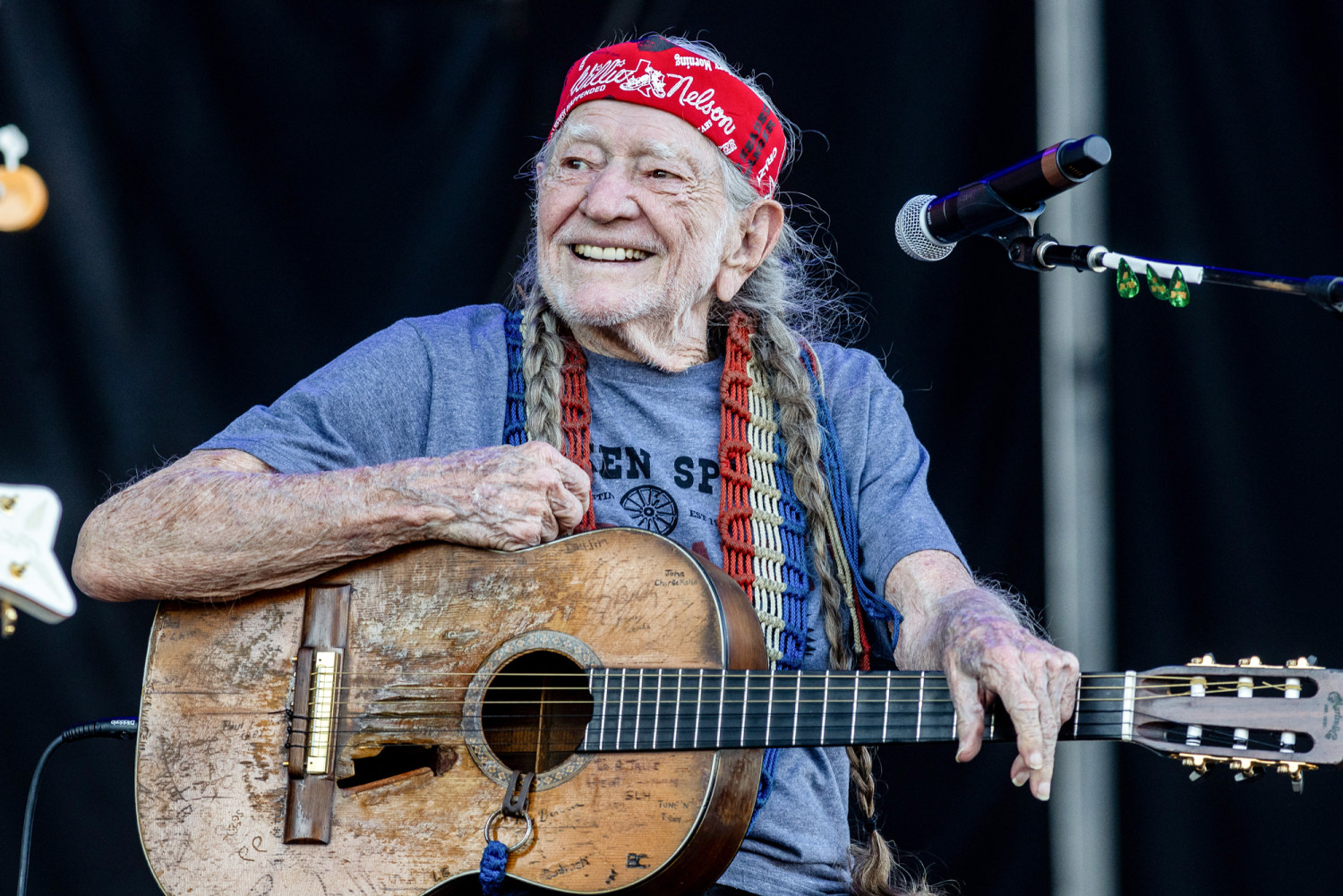Willie Nelson at 92: Returning to His Roots, Remembering the Road

A Quiet Return to Where It All Began
At 92 years old, Willie Nelson — the red-braided troubadour who reshaped American country music — recently took a drive back down memory lane. Without an entourage, without the blinding lights of a concert stage, he guided his pickup truck along a dusty Texas road to the small farmhouse in Abbott where he was born.
There were no roaring crowds, no cameras waiting at the gate. Just the creak of an old door and the familiar scent of wood, dust, and time. Nelson walked slowly through the house, running his calloused fingertips along the worn dining table where his mother once served meals. Through the narrow window, he looked out at the same fields where he had first strummed a guitar, dreaming of songs that might one day carry beyond the horizon.
In that moment, the legend disappeared. He was no longer the outlaw icon, the Hall of Fame inductee, or the activist who lent his voice to countless causes. In that quiet farmhouse, he was simply Willie — a boy from Texas who never stopped chasing songs.
The Making of a Legend
Willie Nelson’s journey from that small farmhouse to the grand stages of the world is one of the most remarkable in American music. Born on April 29, 1933, he grew up during the Great Depression, raised primarily by his grandparents after his parents separated. Music became both an escape and a calling.
By the time he was in his teens, Nelson was already writing songs and performing in local bars. His unique voice, nasal and unmistakable, along with his ability to weave stories into melodies, made him stand out in a genre often defined by convention. When Nashville initially turned him away, Nelson didn’t bend — he carved his own path.
In the 1970s, he emerged as a leader of the “outlaw country” movement, alongside Waylon Jennings, reshaping country music into something rawer, grittier, and truer to its roots. Hits like On the Road Again and Blue Eyes Crying in the Rain became anthems, while his battered guitar, Trigger, became as much a symbol of rebellion as his braids.
The Road That Never Ends

Even at 92, Willie Nelson has not slowed in the way most would expect. While many of his peers have long since retired, Nelson continues to record new music, perform on stage, and headline his annual Fourth of July Picnic concerts in Texas. His touring schedule, though lighter than in his younger years, still puts younger artists to shame.
“I don’t know what else I’d do,” Nelson once said in an interview. “Music is how I breathe. As long as I can hold a guitar, I’ll keep playing.”
That philosophy has guided him for more than seven decades. His songs still touch on the themes that defined his life: freedom, heartbreak, wanderlust, and the open road.
A Tear in the Silence
Back inside the Abbott farmhouse, Nelson paused. He closed his eyes and whispered softly to the shadows of his past:
“I spent my life chasing highways and stages… only to realize the truest song was always here, in the quiet roots of where I began.”
It was a confession not of regret, but of recognition. For all the miles traveled, the records sold, and the stages conquered, the essence of Willie Nelson has always been bound to the simplicity of Texas soil, to the values of family, community, and music born from struggle.
Legacy Beyond Music
Willie Nelson’s impact extends far beyond the charts. He has been a voice for farmers through Farm Aid, a champion for marijuana legalization long before it became mainstream, and an advocate for peace and justice in an often-divided country. His ability to bridge generations — from classic country fans to younger audiences discovering him through collaborations with artists like Snoop Dogg and Kacey Musgraves — speaks to the timelessness of his spirit.
At 92, Nelson embodies resilience. His health has faced challenges, but his drive remains unbroken. Each performance now feels like both a gift and a farewell — though fans know Willie isn’t finished yet.
The True Song
As the sun set over Abbott, Nelson stepped back into his pickup. The house behind him was the same as it had always been: modest, weathered, quiet. But for Willie, it was everything.
To the world, he is a legend, an outlaw, a cultural icon. To himself, he is still just a boy from Texas with a guitar, chasing songs that seem to write themselves on the wind. And in that balance — between myth and man, noise and silence — lies the truest measure of his life’s work.
💬 At 92, Willie Nelson continues to remind us that fame may fade, but roots remain eternal.
👉 What do you think defines Willie’s greatest legacy — his music, his activism, or the way he has stayed true to himself?
Share your thoughts in the comments — because Willie’s story is still being written, one song at a time.

